Take part and make a difference! National Eczema Society is excited to share these ground-breaking research opportunities that could change lives. By participating, you’re not just contributing to the future of eczema treatment – you’re helping to bring hope and healing to millions. Your involvement could lead to discoveries that make living with eczema easier, healthier and more manageable. This is your chance to be a catalyst for change and to help shape a brighter future for everyone affected by eczema. Let’s work together to make a real impact!
See below for opportunities to take part in eczema research, or to share your experiences. Please note these projects are not run by National Eczema Society, but by other organisations usually university research departments.
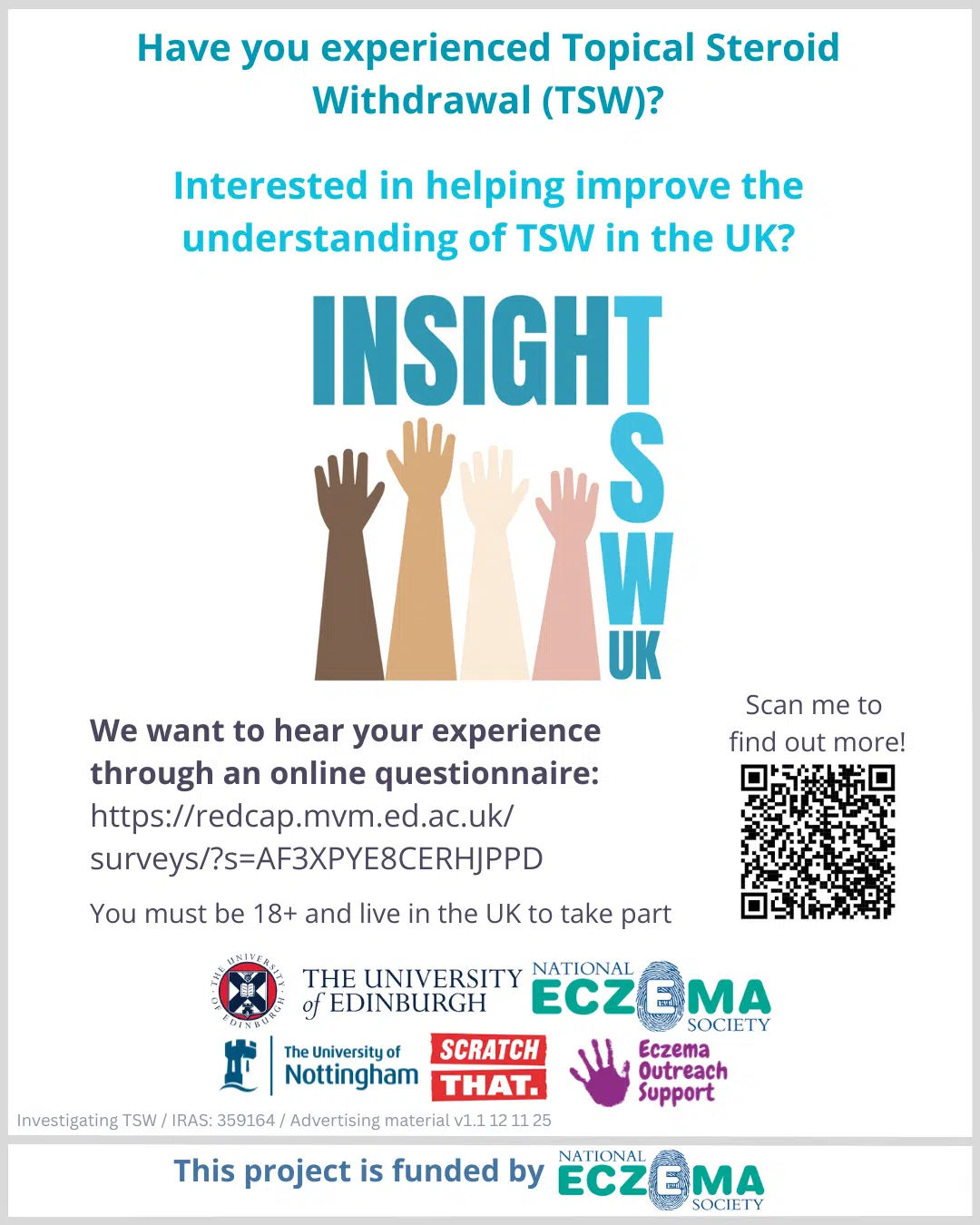
For the first time, the Insight TSW UK study will collect data from the UK public in a structured way to improve our understanding of how to diagnose, prevent and treat TSW.
If you’ve experienced TSW, we want to hear about your experience through an online questionnaire: https://redcap.mvm.ed.ac.uk/surveys/?s=AF3XPYE8CERHJPPD
You must be 18+ and live in the UK to take part.
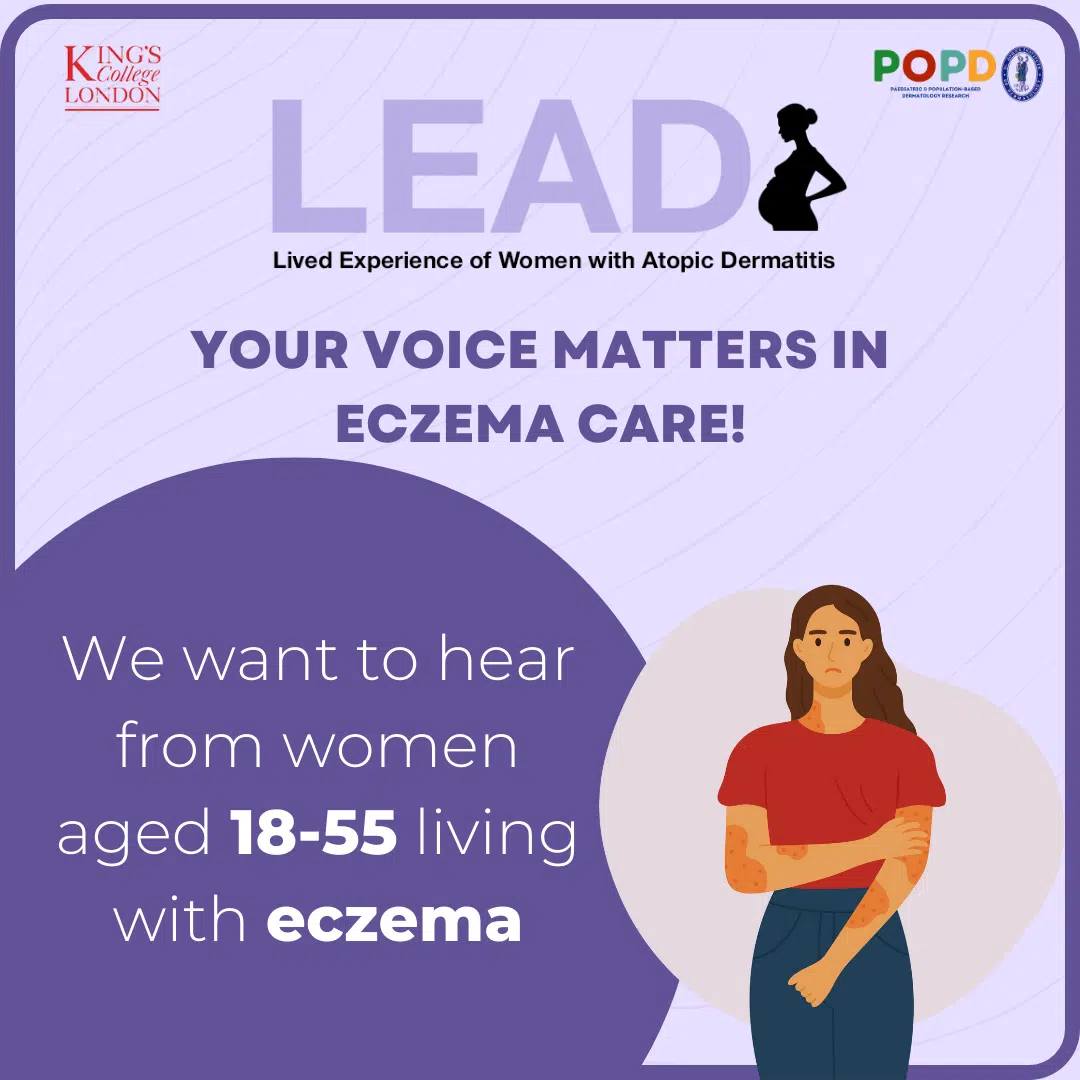
LEAD Study
The National Eczema Society is thrilled to be part-funding the pioneering LEAD Study, which is set to shine a spotlight on women’s lived experiences of eczema. This exciting research will recruit women to share their stories and perspectives, helping to uncover how eczema affects daily life, wellbeing and access to care. By amplifying women’s voices, the study aims to drive real change in understanding and support for people with eczema. Find out more about this and other NES-funded projects on our Research Grant Winners. If you are interested in the LEAD Study email leadstudy@kcl.ac.uk.
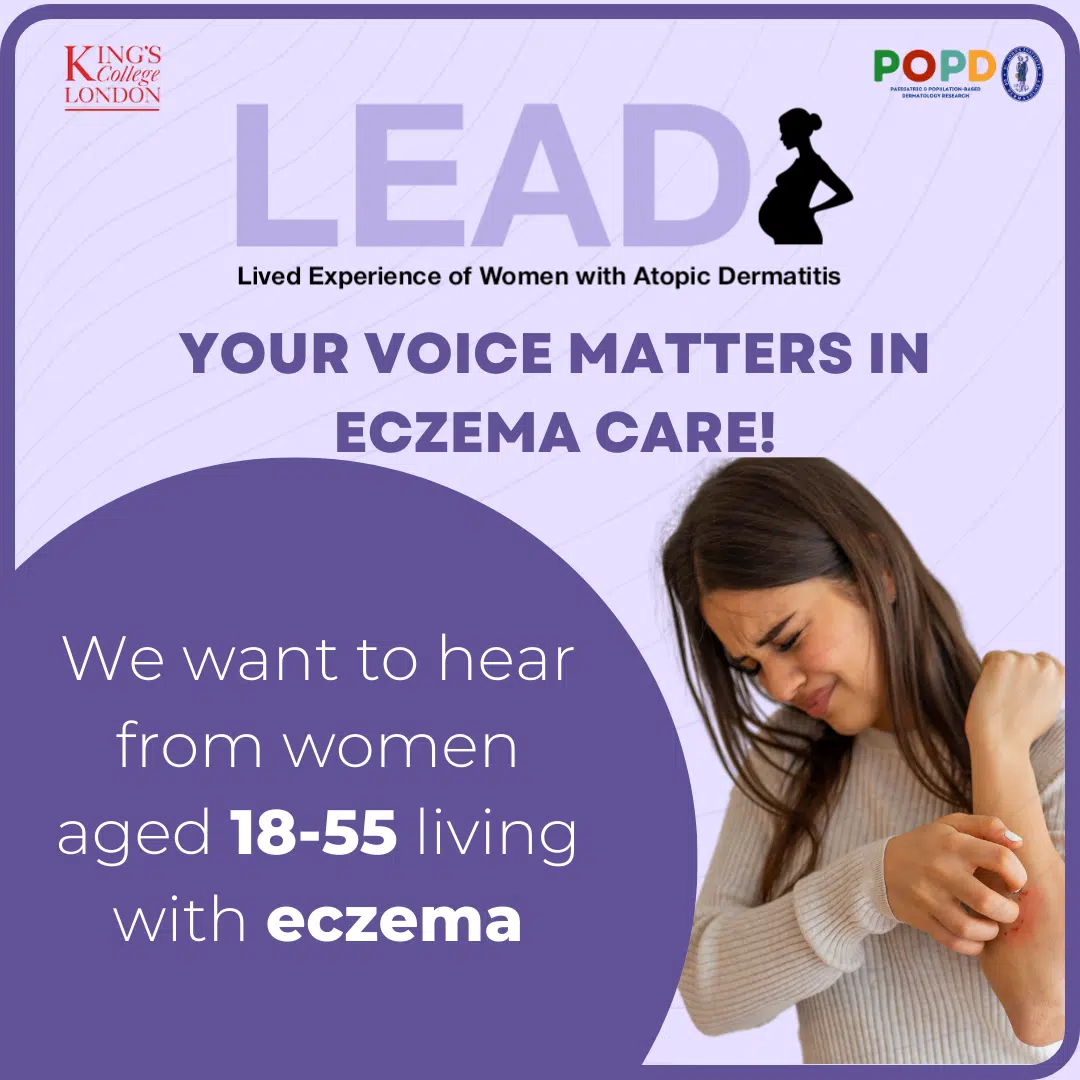
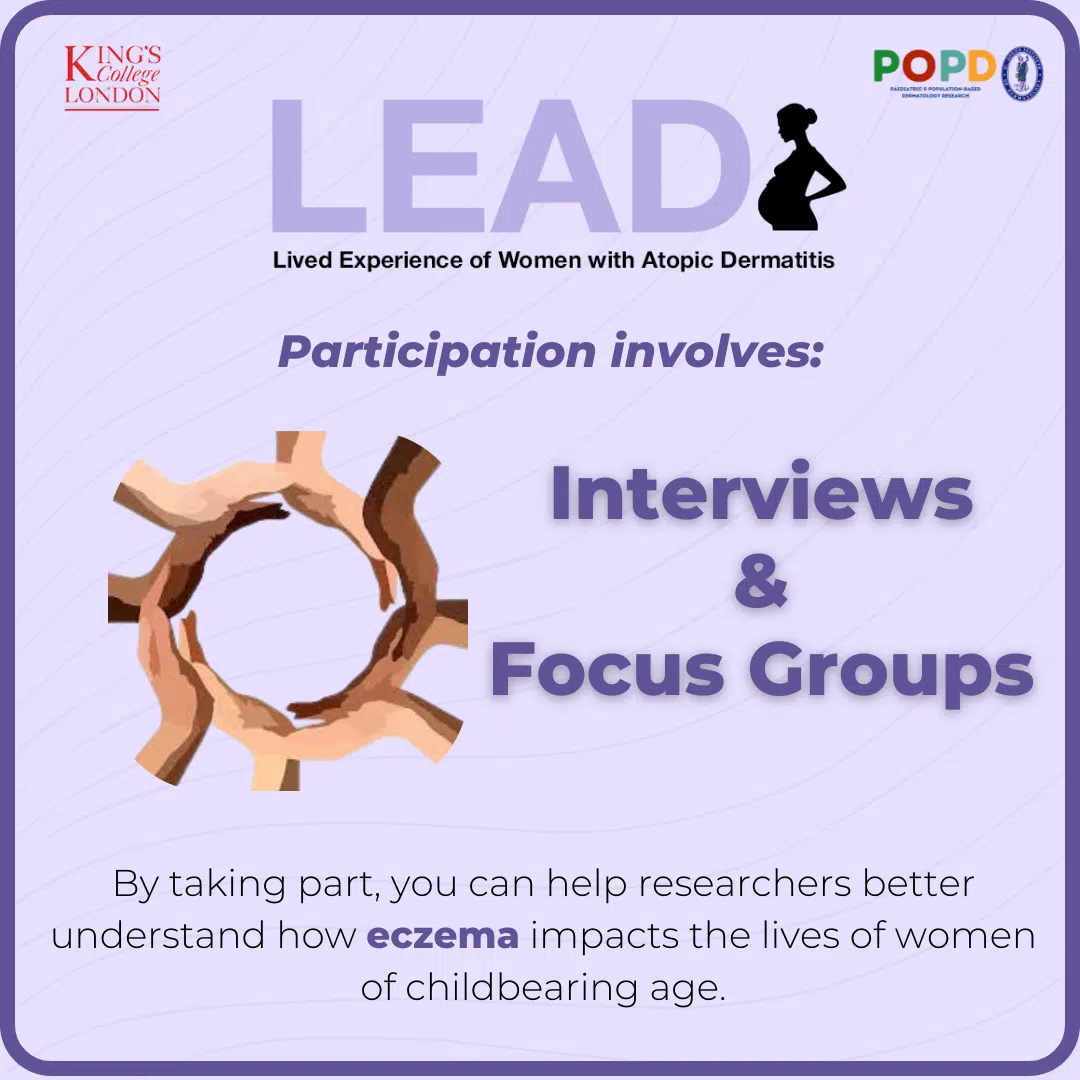
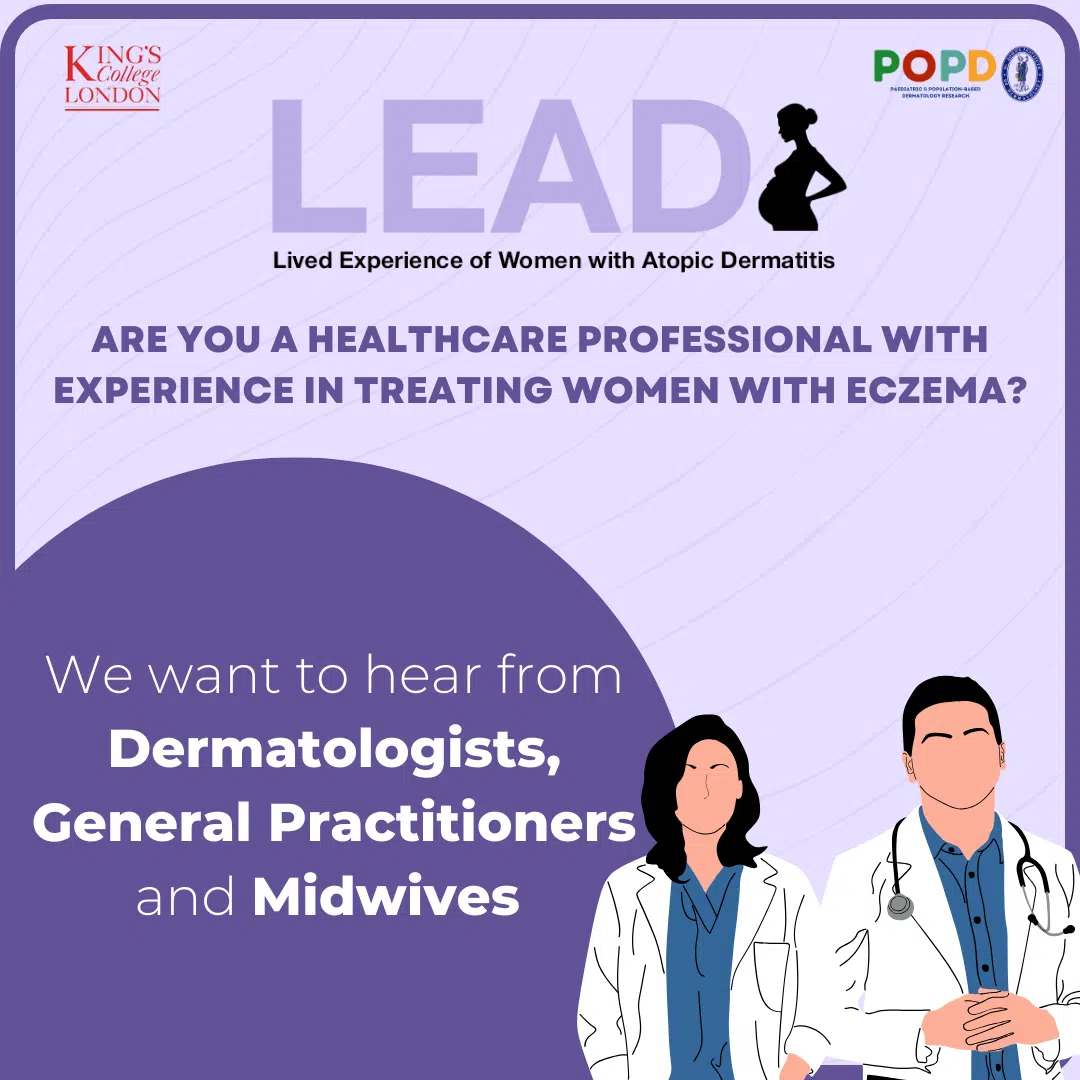
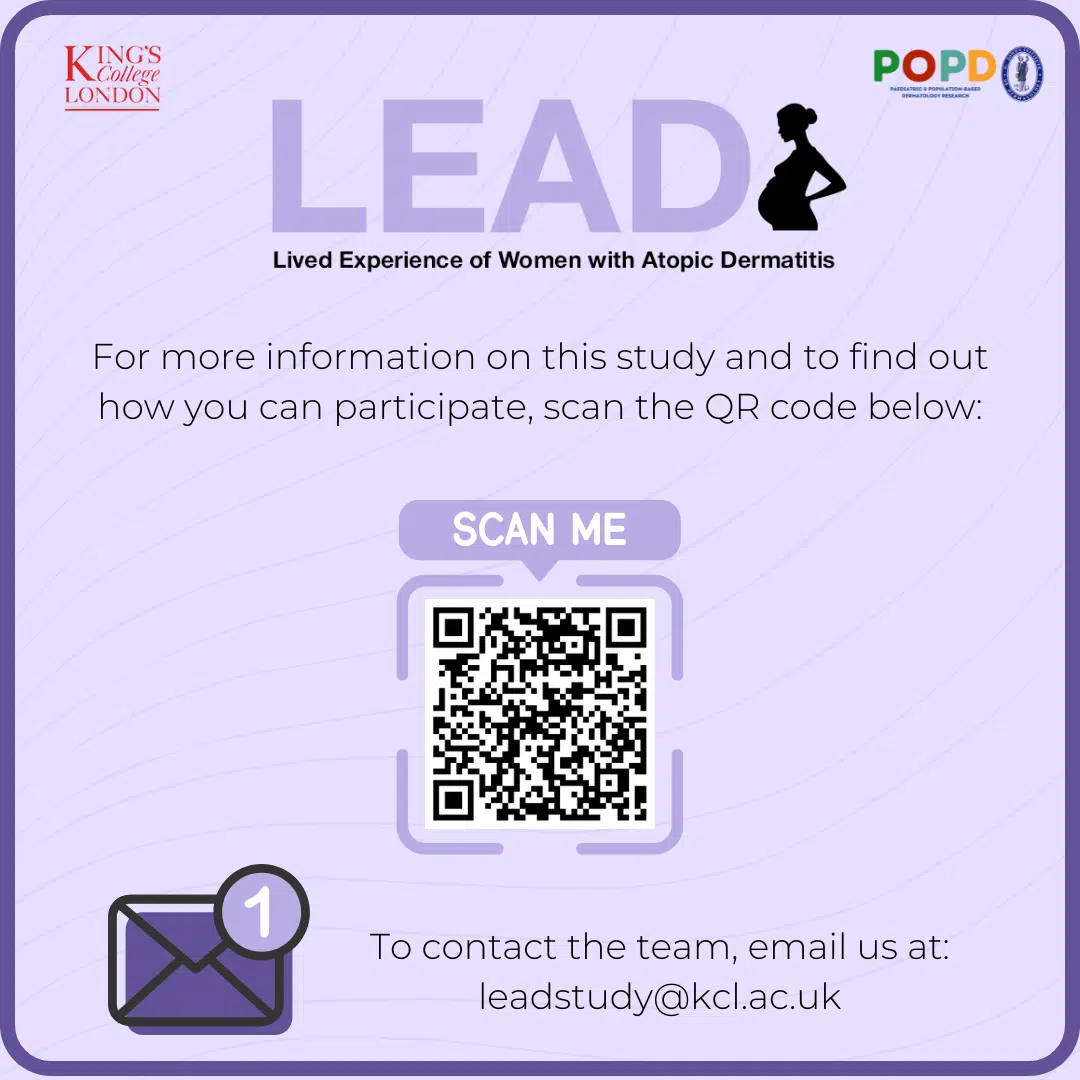

A-STAR UK-Irish Atopic Eczema Systemic Therapy Register
A-STAR is undertaking a ground breaking observational study, currently running in the UK and Ireland, collecting information from adults and paediatric patients with eczema, starting certain treatments, such as ciclosporin, methotrexate, azathioprine, or novel treatments, such as biologics and so-called ‘small molecules’. A-STAR is looking to assess the short and long-term safety and efficacy of systemic immuno-modulators for people of all ages with atopic eczema.
Please speak to your local dermatologist about A-STAR to check whether you are eligible to join the study.
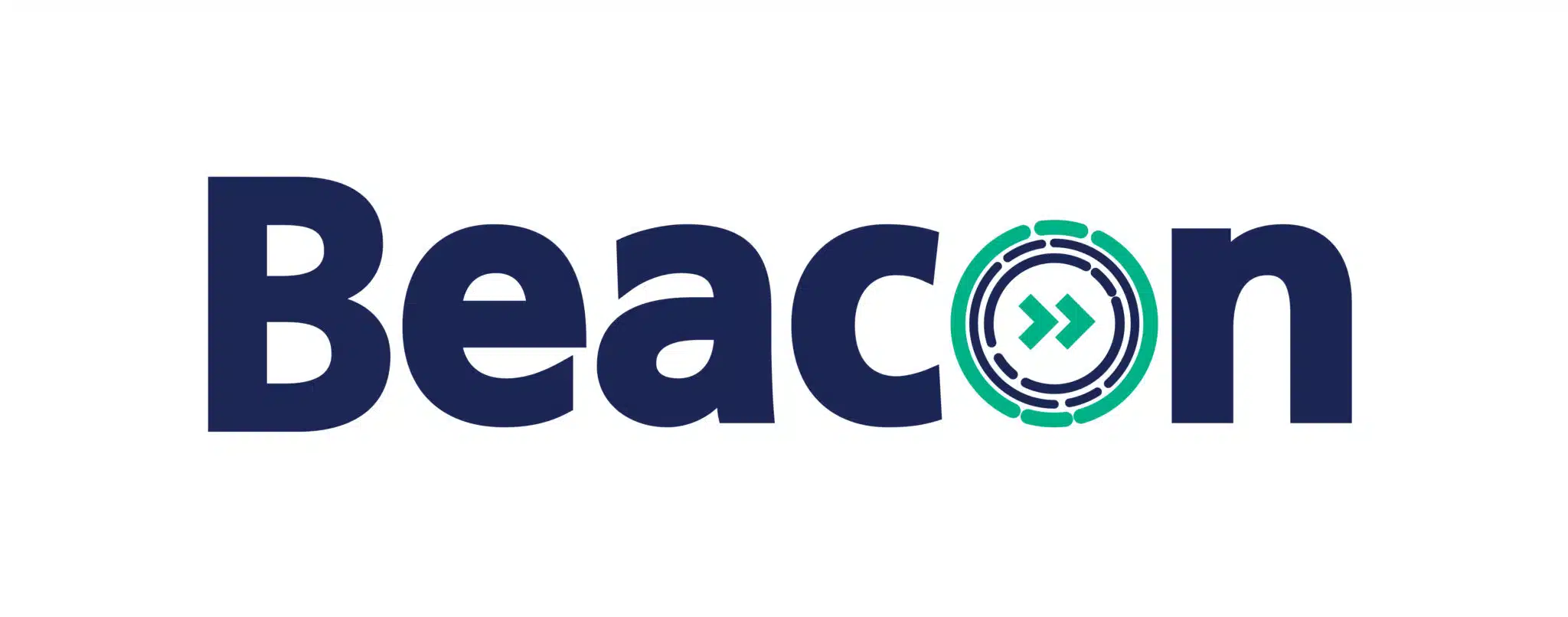
Beacon
It isn’t always easy to find treatments that improve your eczema when creams and ointments aren’t doing the job.
The BEACON trial is now recruiting new patients. The BEACON Trial is comparing systemic treatments – those taken by tablet or self-injection – to see which is most effective, tolerable, and cost-effective for the NHS. You don’t need a GP referral to take part and can register your interest by getting in touch with the team at www.beacontrial.org/contact. Please see list of growing recruiting sites around the UK.

BIOMAP
BIOMAP is an exciting European research initiative which is taking advantage of recent technical developments in translational medicine, to drive drug discovery and improve direct disease management in atopic eczema and psoriasis.
BIOMAP offers hugely exciting opportunities to better understand the causes of eczema and disease progression, opening the way for personalised medicine. National Eczema Society is proud to be a member of the patient group board for this initiative.

CARE
The CARE Study is a research programme led by the Paediatric Dermatology team at St Thomas’ Hospital, exploring how eczema develops in early life. By comparing the skin immune system, barrier and microbiome of babies with eczema to those with healthy skin, the study aims to better understand the biological changes that occur during the earliest stages of eczema.
Using gentle, non-invasive skin assessments, the study explores how the skin barrier, immune system and microbiome behave when eczema is present. These insights may help pave the way for earlier support, improved prevention and more effective care in early life for eczema.
The CARE study is recruiting babies aged 0–6 months, with or without eczema. Parents who take part receive expert skincare advice from a dermatology doctor, including eczema guidance where needed. Together, we’re working towards a future where babies and families receive better, earlier eczema care. Find out more at CARE – ppopderm or get in touch at gstt.carestudy@nhs.net.

CUTIE
The CUTIE Study is an exciting research programme led by the Paediatric Dermatology team at St Thomas’ Hospital, exploring how a baby’s skin immune system, barrier and microbiome develop in the very first months of life. Researchers are investigating whether gentle baby massage, carried out at different frequencies may help support healthy skin and immune development.
The study uses a special, non-invasive skin sampling technique to help scientists understand what’s happening in baby skin at the biological level. By bringing together cutting-edge science and everyday baby care, the CUTIE study aims to uncover new insights that could shape future advice on healthy infant skincare and development.
The CUTIE Study is recruiting healthy babies aged 0–6 months. Parents who take part receive expert baby-skincare advice and free allergy testing to common allergens for their baby, while helping contribute to research that may benefit families in the future. Find out more at CUTIE – ppopderm or get in touch at gstt.cutie.study@nhs.net.

KEEP Control Trial
KEEP Control trial is now open. This trial is designed to answer an important question: how long should steroid creams be used during a flare?
Rapid Eczema Trials is looking for 450 people in the UK, aged 1 and over, who use topical corticosteroids for their eczema.
If that’s you—or someone you know—you can learn more and sign up here: https://rapideczematrials.org/keep-control-study. The results will help give clearer, safer advice for managing eczema flares, with the hope of keeping them at bay for longer.

Mind & Skin
Mind & Skin
Come and take part in our exciting study, exploring the connections between eczema, sleep quality and the brain!
The Mind and Skin study investigates the impact of skin inflammation, itch and sleep disturbance on the brain in patients with eczema (atopic dermatitis)
Who are we looking for?
Anyone aged 12-18 years old with or without eczema
What will it involve?
Skin assessments with swabs/tape strips (nothing invasive). A sleep study in the comfort of your own home.
Computer games and an IQ test.
An MRI scan for brain imaging.
Completing some questionnaires on sleep patterns and the impact of eczema on quality of life.
A small blood sample + home kit for a stool sample.
Time commitment?
Average of 2 visits approx. 1 and a half days
Why take part?
Help us better understand the connections between eczema, sleep and the brain by taking part in this landmark study.
£50 voucher as a thank you for volunteering your time!
- Know anyone in this age group who might be interested in getting involved or want more information? Get in touch by sending us an email at mindskin@gstt.nhs.uk !
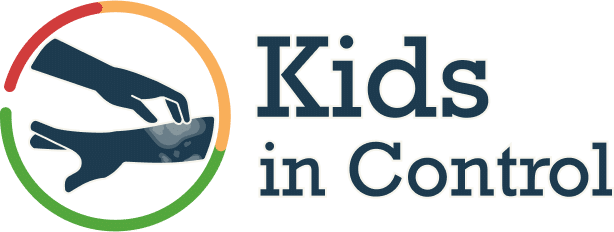
Kids in Control
Join this exciting study and help Kids in Control shape the future of children’s mental health! Your participation can make a real difference in understanding and improving support for young people.
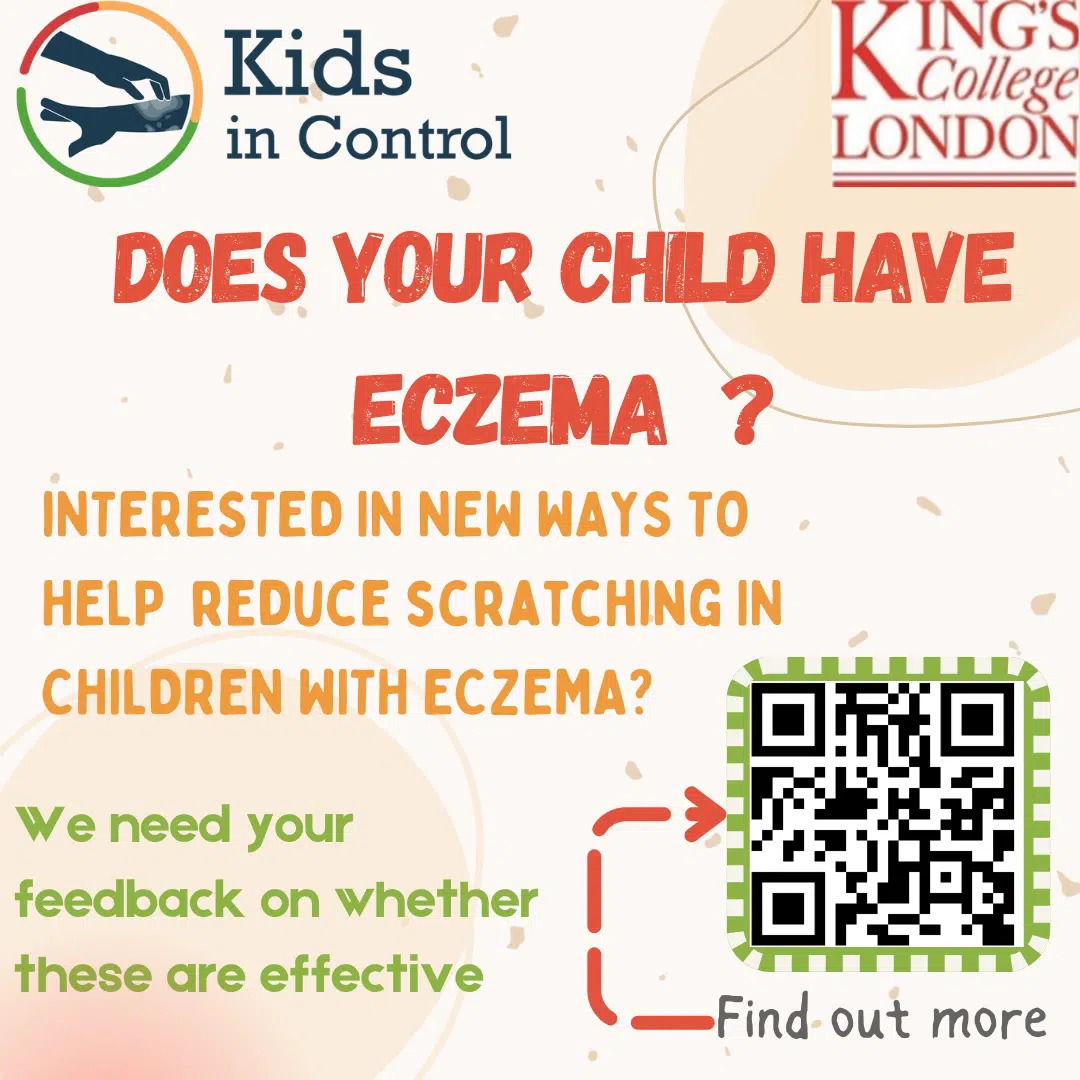

COSMOS Study
Ever wondered how skin structure differs in people with and without eczema? COSMOS we’re on a mission to find out — and we need your help!
We’re looking for volunteers from diverse backgrounds across the UK to take part in our COSMOS study. Just one visit to the Royal Hallamshire Hospital, where we’ll take a closer (but totally harmless!) look at your skin using a cutting-edge imaging technique 🧴🔬
✅ People with and without eczema welcome
✅ People with eczema who have used Topical Corticosteroids (TCS) for more than 3 months within the past 6 months, either intermittently or continuously.
✅ All ages and skin tones encouraged
✅ Travel covered + £20 thank-you voucher
✅ Flexible appointments during working hours
✅ Study takes up to 3 hours — just one visit!
By helping us understand what healthy and eczema-affected skin looks like across different people, you’ll be contributing to better care and future treatments 💙
👉 Interested or want to learn more? Drop us a message or check the link
Explore the brand-new St John’s Institute of Dermatology website — where patients, carers and researchers come together to advance eczema research. Discover how you can get involved in studies, share your experience, and shape the future of skin health.
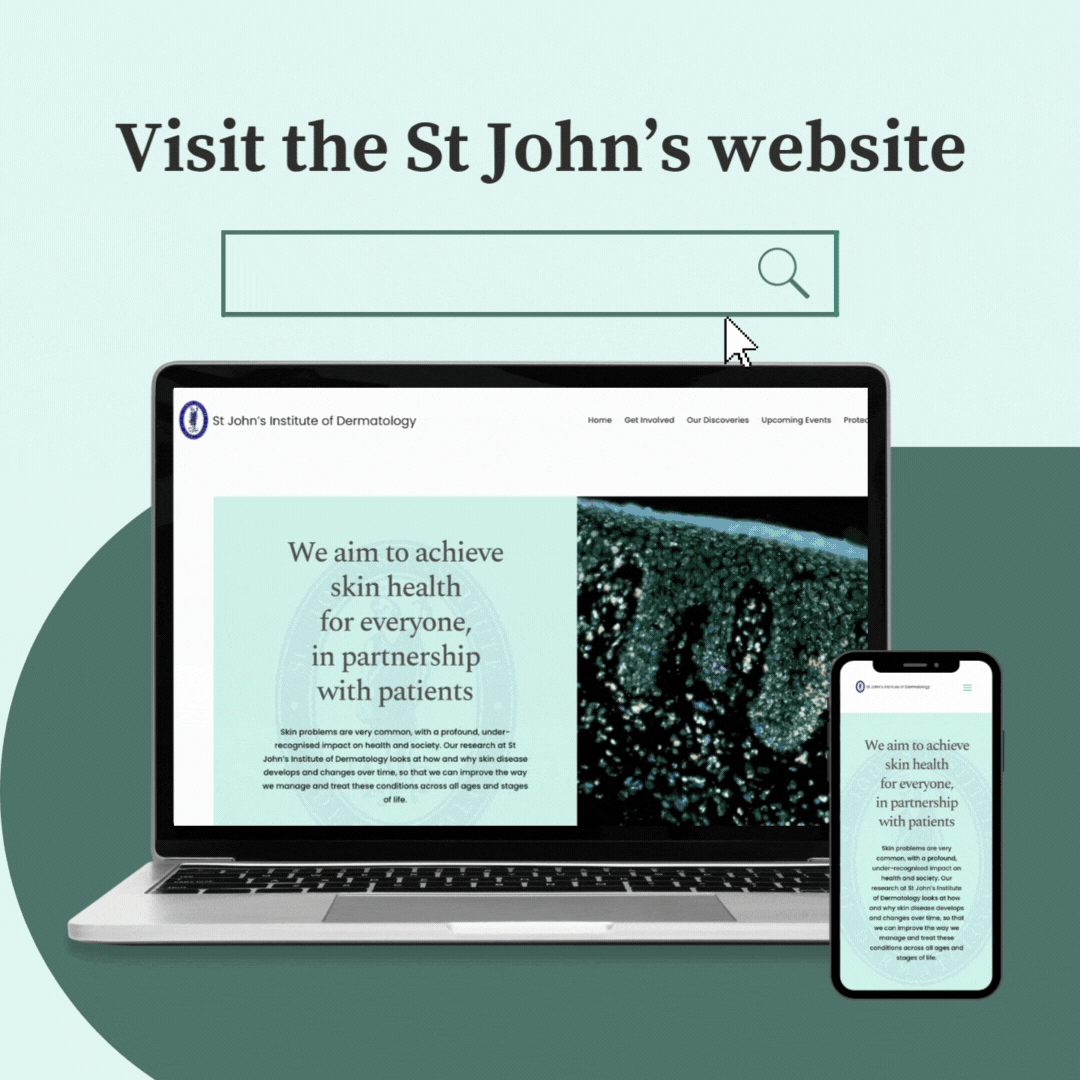
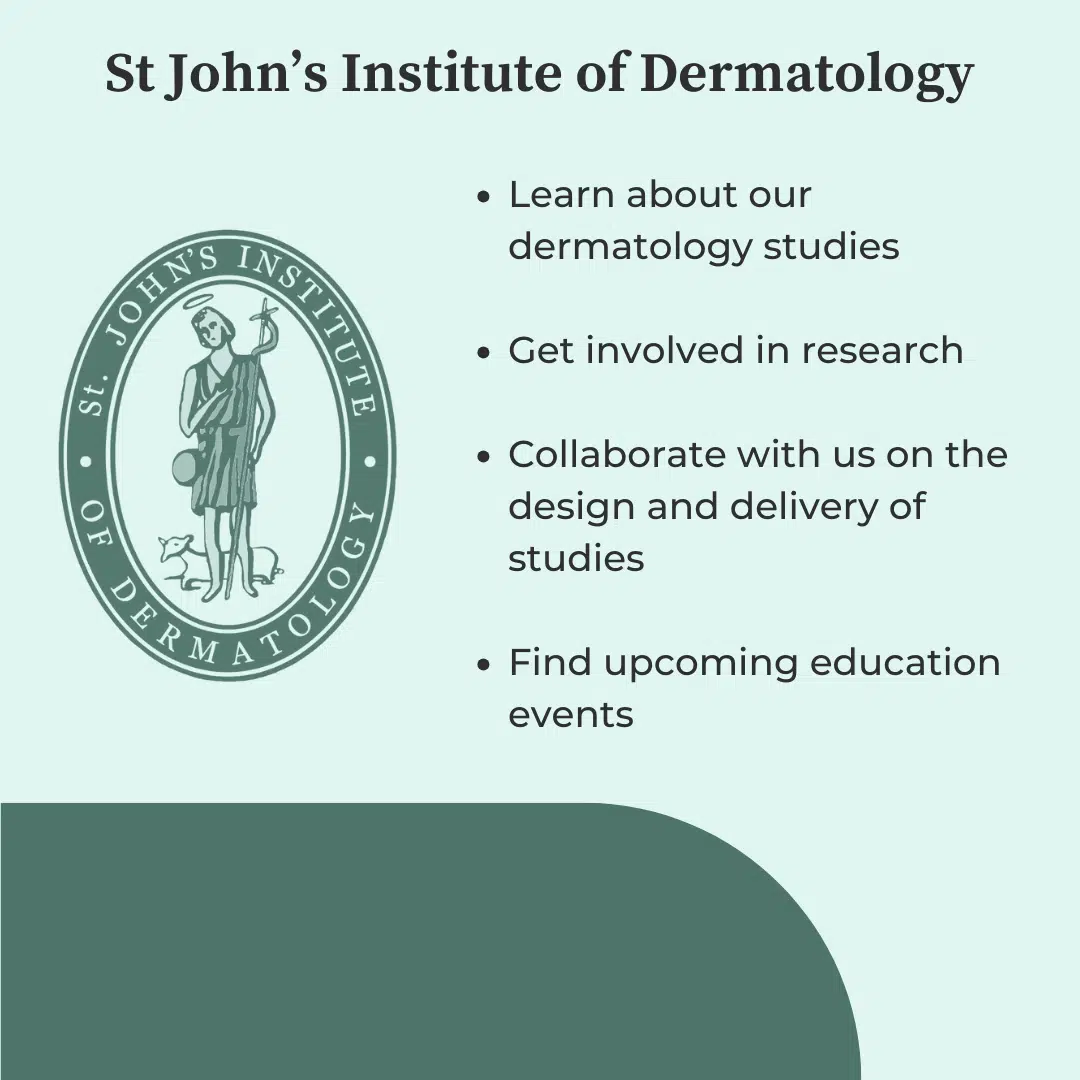
Disclaimer
The National Eczema Society (NES) is committed to supporting advancements in eczema research by partnering with reputable organizations, institutions, and researchers. However, NES does not endorse, guarantee, or take responsibility for the conduct, findings, or outcomes of any independent studies, research projects, or clinical trials conducted by external entities. Participation in external studies is entirely voluntary, and any decisions made by individuals, healthcare providers, or third parties based on external research are their own.
NES provides information on research opportunities for educational and informational purposes only and does not verify, monitor, or control the methodologies, ethical practices, or results of such research unless explicitly stated. NES disclaims all liability for any loss, damage, or adverse effects that may result from reliance on or participation in any external studies.
For any concerns or questions regarding specific research projects or studies, we advise individuals to consult directly with the responsible research institution or healthcare professionals. NES encourages all participants to exercise caution and ensure that studies are conducted in accordance with appropriate legal and ethical standards.
For more information about taking part in these research studies, please contact the research teams directly using the contact details listed.

